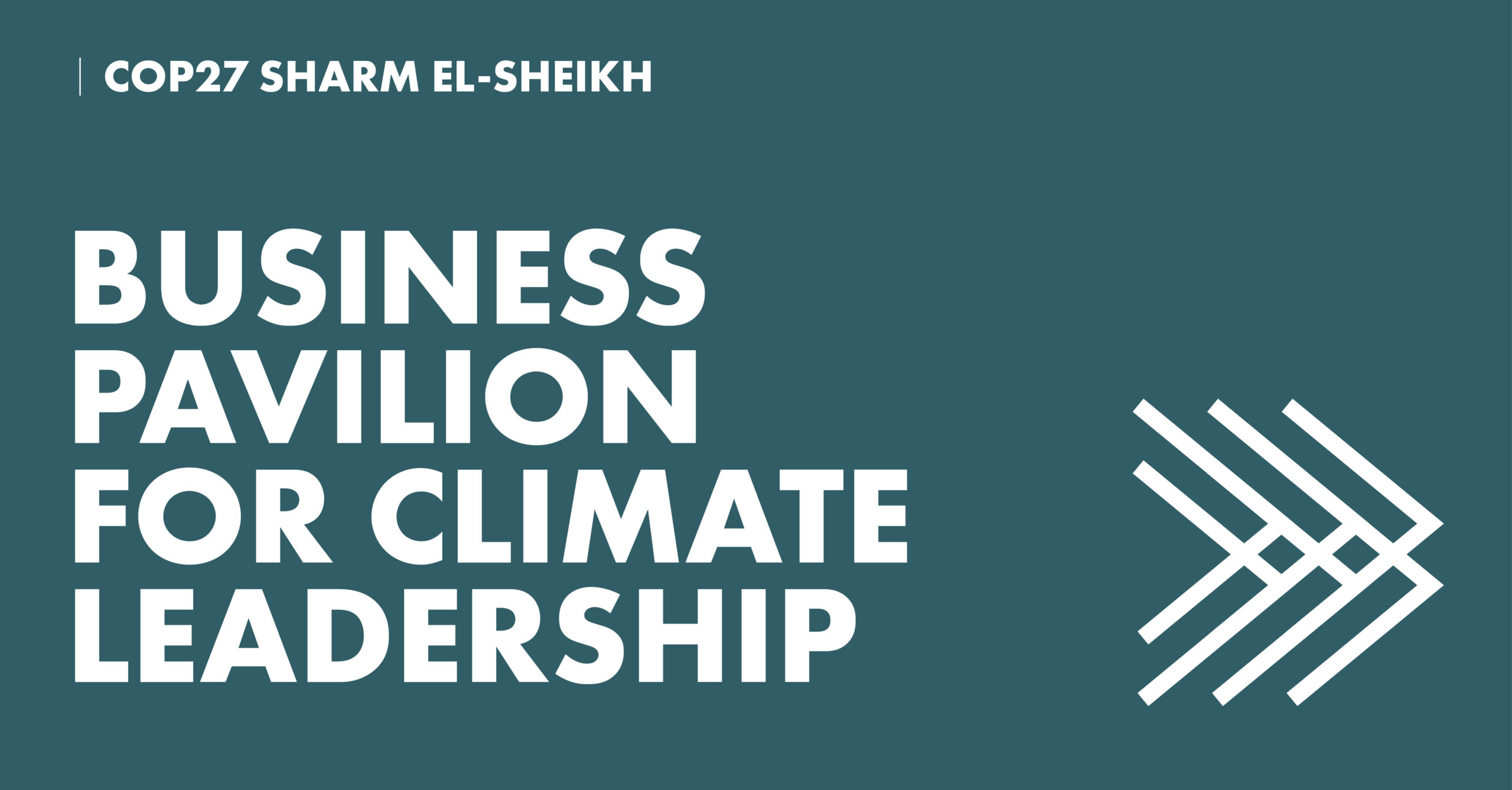COP27 Business Pavilion
We Mean Business Coalition
We Mean Business Coalition is hosting the Business Pavilion in the Blue Zone at COP27 in Sharm-El-Sheik, Egypt, with WBCSD and 70+ partner organizations.
to receive our monthly newsletter